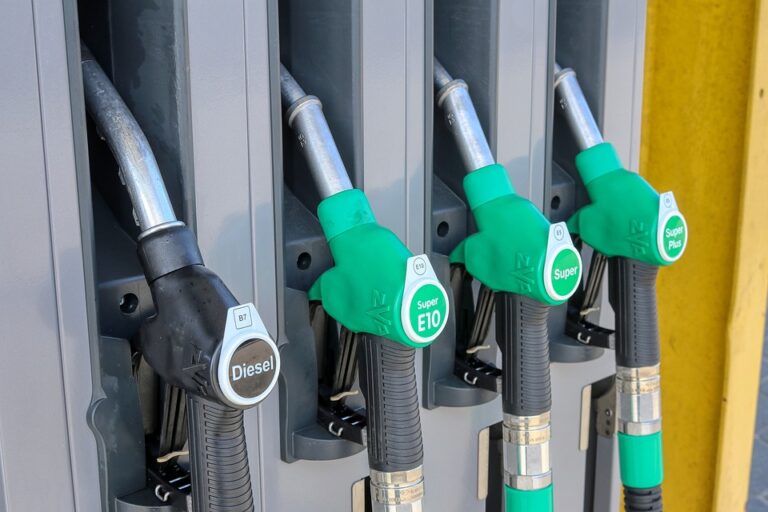Save Money at the Pump: Expert Fuel Efficiency Tips You Need to Know
In today’s economy, with gas prices fluctuating constantly, everyone is seeking ways to save money at the pump. Whether you’re commuting to work, heading to the grocery store, or planning a road trip, improving your vehicle’s fuel efficiency can lead to substantial savings. Here are expert fuel efficiency tips that can help you maximize your mileage, reduce expenses, and contribute to a greener planet.
Understanding Fuel Efficiency
Fuel efficiency refers to how effectively your vehicle converts fuel into miles traveled. By understanding how various factors affect this efficiency, drivers can adopt certain habits and maintenance tips to ensure they are getting the most out of every gallon.
Why Fuel Efficiency Matters
- Cost Savings: The more efficient your vehicle, the less you spend on fuel.
- Environmental Impact: Higher fuel efficiency means fewer emissions released into the atmosphere.
- Vehicle Longevity: Maintaining a vehicle in good condition boosts fuel efficiency and extends its lifespan.
Key Fuel Efficiency Tips
1. Regular Maintenance Is Crucial
Keeping up with regular maintenance is one of the most critical fuel efficiency tips you can follow. Here’s what you should focus on:
-
Oil Changes: Use the manufacturer-recommended oil type and change it as directed. Clean oil lubricates engine components more effectively, ensuring optimal performance.
-
Air Filters: Replace dirty or clogged air filters, as they can restrict airflow to the engine, reducing fuel efficiency.
- Tire Pressure: Regularly check your tire pressure and keep them inflated to the recommended levels. Under-inflated tires can lower your gas mileage by up to 3%.
2. Drive Smart
Your driving habits significantly affect your vehicle’s fuel efficiency. Here are a few tips to help you drive more economically:
-
Avoid Aggressive Acceleration: Smooth and gradual acceleration can improve fuel efficiency. Sudden starts and stops burn more fuel than smooth driving.
-
Observe Speed Limits: Driving at or below speed limits not only keeps you safe but also enhances fuel efficiency. Fuel economy usually decreases significantly at speeds above 50 mph.
- Reduce Idling Time: Turn off your engine when parked or waiting for more than a minute. Idling consumes fuel without moving you an inch.
3. Optimize Your Route
Planning your trips can lead to substantial savings in fuel costs:
-
Use GPS Navigation: Invest in a reliable GPS app that helps avoid traffic congestion. This minimizes idling and stop-and-go driving, maximizing efficiency.
- Combine Errands: Group your errands together into one trip instead of making multiple, shorter trips. This helps keep the engine warm and reduces fuel consumption.
4. Know When to Use Air Conditioning
Air conditioning can negatively affect fuel efficiency, particularly in smaller vehicles. Here are the best practices:
-
Use the A/C Wisely: At lower speeds, it’s often better to roll down the windows. However, at highway speeds, keeping windows up and using the A/C strategically can be more fuel-efficient.
- Ventilation: On hot days, consider opening windows briefly to ventilate before stopping to cool the car, reducing the need for A/C use immediately.
5. Choose the Right Fuel
Using the correct fuel for your vehicle is essential for optimal performance:
-
Recommended Octane Rating: Always use the type of fuel recommended by your vehicle manufacturer. Using a higher octane fuel than needed provides no added benefit and wastes money.
- Conscientious Choices: Whenever possible, opt for higher-quality fuels that contain cleaning agents. These can improve engine performance over time.
Additional Fuel-Saving Practices
6. Reduce Vehicle Weight
Remove unnecessary items from your vehicle. Excess weight can decrease fuel economy. To maximize efficiency:
- Organize Your Trunk: Keep only essential items and remove roof racks when not in use, as they create drag that lowers fuel efficiency.
7. Consider Vehicle Upgrades
If you are focused on long-term savings, investing in a more fuel-efficient vehicle may be worth considering:
- Hybrid or Electric Vehicles: These alternatives typically offer significantly better fuel efficiency and can save you money on fuel costs in the long run.
Conclusion: Take Control of Your Fuel Expenses
By implementing these expert fuel efficiency tips, you can save money at the pump while contributing to a healthier environment. From regular vehicle maintenance to smart driving habits, each step can make a difference. Start today—adopt these habits and watch your savings grow, putting extra cash back in your pocket. For more tips on automotive savings and sustainability, visit our other articles at buzzo.live.
It’s time to become a more fuel-efficient driver. Save money, drive smart, and enjoy the journey!


